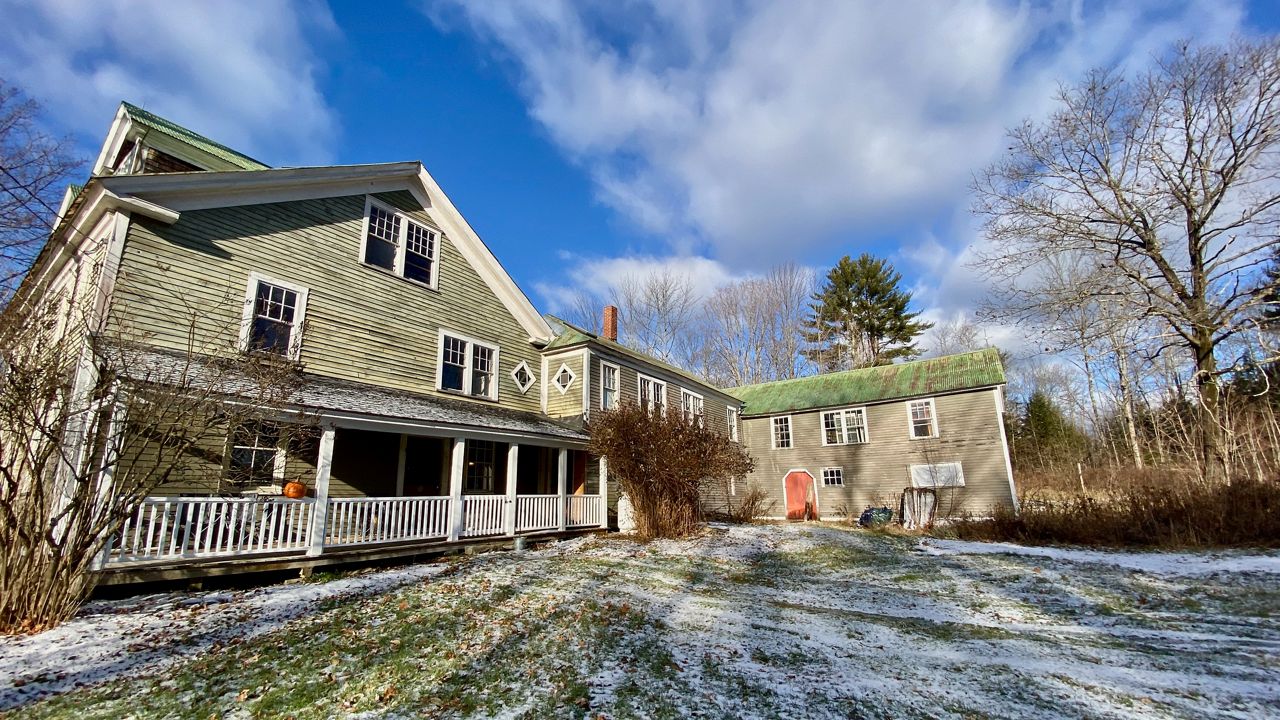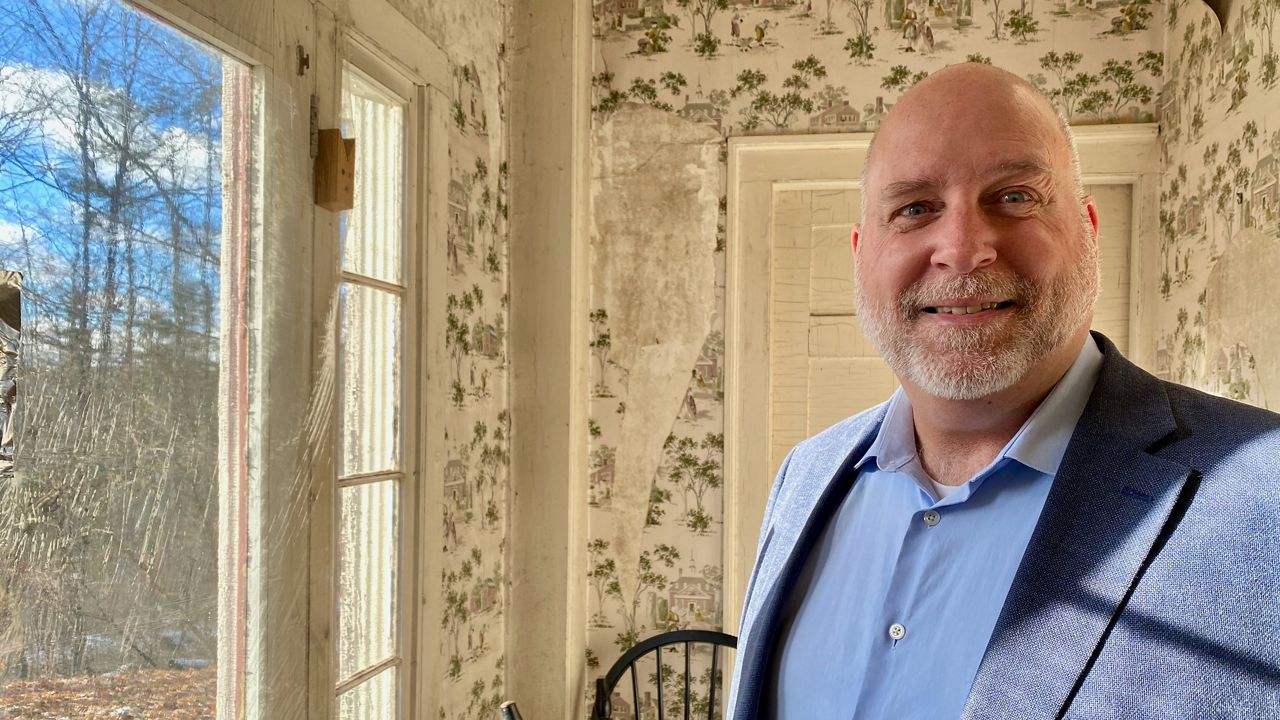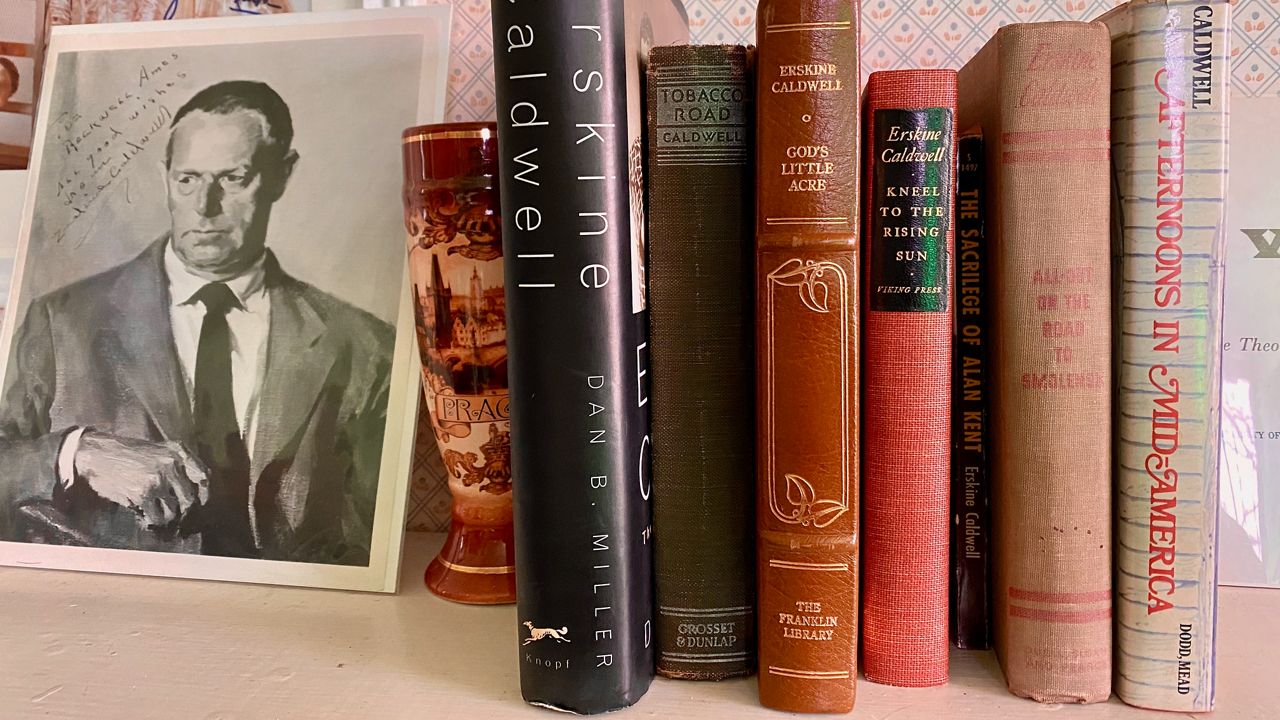Augusta native Tom Field was happily living in New Hampshire in the summer of 2020 when he drove by a house in Mount Vernon that he remembered from childhood.
The 1780s-era house on Pond Road, with additions and a barn, was for sale. The owner happily gave him a tour and said, “I’d consider an offer.”
“I spent half the drive home thinking no, I’m in New Hampshire, why would I want to move back to Maine?” he said last week as a fire filled the woodstove in the dining room. “And the other half thinking, how could I not?”
Since buying the house for $189,000, he’s spent hours researching the history of the home – and the famous author who once lived there.
Erskine Caldwell, best known for the 1932 book “Tobacco Road” and “God’s Little Acre,” which came out the following year, lived in the home with his wife Helen from the mid-1920s to the mid-1930s. Caldwell was described as “one of the most controversial writers in the United States,” according to his 1987 obituary in The New York Times.

“William Faulkner named Mr. Caldwell one of the five best contemporary American writers, along with himself, Thomas Wolfe, Ernest Hemingway and John Dos Passos,” the obituary stated.
A Georgia native, Caldwell wrote more than 50 books that described “deprivation and depravity in the Depression-era Deep South,” the Times said.
In 1925, Caldwell married Helen Lannegan, whose parents owned a summer home in Mount Vernon called “Greentrees.” They lived there for seven years, raising three children, and Caldwell reviewed books and wrote short stories and novels.
Field said Caldwell amassed such a collection of books, he and Helen decided to open a bookstore in Portland. While there, she was cited by the local county attorney for selling Caldwell’s first book “The Bastard.” Later on, “God’s Little Acre” was banned in Boston for profanity and sexually explicit language.
Field recently acquired a copy of Caldwell’s response to the criticism. Titled “In Defense of Myself,” with a Portland, Maine, dateline, Caldwell writes that the Cumberland County attorney suppressed the book before a trial could be held.

“I did not write this novel with obscenity, lewdness and immorality in mind,” he wrote. “I wrote the book because I have a deep sympathy for the people in it. I have slept with them in jails, I have eaten with them in freight cars, I have sung with them in convict camps, I have helped the women give birth to the living.”
Yet for Field, his connection to the home did not initially come from Caldwell. It came from Caldwell’s ex-wife Helen, whom Caldwell divorced in the 1930s to marry photographer Margaret Bourke-White.
Field remembers Helen as a storyteller who visited local schools — he attended Farrington School in Augusta in the 1970s — to tell tales about the home and the region. She called herself “the green witch.”
“This (house) always loomed large because of the stories she told about the place,” he said. “She said there were 20 rooms and 20 ghosts. She would just spellbind us with her stories as kids.”
Today, the home needs many repairs, projects Field plans to take on gradually over the coming years. But rather than gut and redo, he wants to honor those who have come before him.
The house was built by a Revolutionary War soldier, so he displays a flag from that era on one wall. On another, he has a photo of Helen's father, who bought the house in the early 1900s as a summer home.
Field plans to dedicate one room to Helen, the storyteller and dreamer, and right next door will be the office once used by Erskine Caldwell as his writing studio.
The attached barn has a second-floor dance hall with bench seating along the sides of the walls and a piano in the corner.
“There’s graffiti on the walls in there from the 1940s from people who would come over from Kent’s Hill and write their names on the walls,” he said. “It’s been preserved. I want this to be a destination again.”



